Estrogen therapy, a form of hormone replacement therapy (HRT), involves the use of the estrogen hormone to address a range of health concerns, from menopausal symptoms to specific cancers and bone health issues.
Estrogen pills, one of the most common forms of this therapy, aim to replenish declining hormone levels in the body. While the benefits of estrogen therapy can be transformative, it also carries potential risks that must be carefully considered.
This comprehensive guide explores the benefits, risks, and applications of estrogen pills, helping you make informed decisions about your health. And, of course, our team of experts here at Rejuvenate HRT is always available for any questions you may have with unlimited consultation.
What Is Estrogen Therapy?
Estrogen therapy, also known as estrogen replacement therapy, is a treatment designed to supplement the body’s natural estrogen levels. As estrogen levels decline due to menopause, aging, or medical conditions, symptoms such as hot flashes, vaginal dryness, and bone loss can develop.
Estrogen pills are one method of delivering this hormone to the body, providing relief from these symptoms and improving overall well-being.
Applications of Estrogen Therapy Include:
-
Menopause Symptom Relief: Alleviating hot flashes, night sweats, and vaginal dryness.
-
Bone Health Support: Reducing the risk of osteoporosis and fractures.

Benefits of Estrogen Therapy
Relief from Menopausal Symptoms
Estrogen therapy is highly effective in addressing common menopause symptoms, such as:
-
Hot Flashes: By stabilizing hormone levels, estrogen reduces the frequency and intensity of hot flashes.
-
Vaginal Dryness: Local and systemic estrogen therapy improves vaginal lubrication, elasticity, and comfort.
-
Improved Sleep: Relief from night sweats often leads to better sleep quality.
Bone Health
Estrogen plays a crucial role in maintaining bone density. When levels decline, the risk of osteoporosis and fractures increases. Estrogen therapy helps:
-
Increase Bone Density: Reducing the likelihood of fractures.
-
Prevent Osteoporosis: Particularly in postmenopausal women at high risk.
Vaginal Health
Estrogen therapy supports vaginal health by alleviating vaginal symptoms such as dryness and irritation:
-
Improving Tissue Quality: Reducing dryness and irritation.
-
Decreasing Bleeding Risk: Addressing abnormal vaginal bleeding caused by hormonal imbalances.
Types of Estrogen Therapy
Hormone therapy, including estrogen therapy, can be administered in several ways, allowing flexibility based on individual needs and preferences:
Oral Estrogen Pills
-
Convenient and Effective: Easy to take and widely available.
-
Systemic Benefits: Treats whole-body symptoms, such as hot flashes and night sweats.
Transdermal Estrogen
-
Patches and Gels: Absorbed through the skin for consistent hormone delivery.
-
Lower Risk of Clots: May have a lower risk of blood clots compared to oral pills.
Vaginal Estrogen
-
Localized Relief: Creams, rings, and suppositories specifically target vaginal dryness and irritation.
Combination Therapy
Estrogen is often combined with progestin, especially for individuals with a uterus, to reduce the risk of uterine cancer.

Who Can Benefit from Estrogen Therapy?
Estrogen therapy is suitable for specific groups, including:
Women with Menopausal Symptoms
Women experiencing severe symptoms of menopause, such as hot flashes, night sweats, or vaginal dryness.
Seeking relief from the discomfort associated with menopause.
Women at Risk of Osteoporosis
-
Postmenopausal women with low bone density or a history of fractures.
-
Those who cannot tolerate other osteoporosis treatments.
Risks and Side Effects of Estrogen Therapy
While estrogen therapy offers significant benefits, it also carries potential risks.
Blood Clots and Stroke
-
Increased Risk: Oral estrogen pills can increase the likelihood of blood clots and stroke, particularly in older women.
-
Combination with Progestin: The risk may be higher when estrogen is combined with progestin.
Cancer Risks
-
Breast Cancer: Long-term use of estrogen therapy, especially with progestin, can elevate breast cancer risk.
-
Endometrial Cancer: Estrogen-only therapy may increase the risk of uterine cancer in women with an intact uterus.
Other Side Effects
-
Weight gain.
-
Mood changes, including irritability or depression. Additionally, fluctuations in estrogen levels can affect the menstrual cycle, leading to mood changes and other symptoms.
-
Vaginal bleeding.
-
Rare allergic reactions.

Contraindications and Precautions
Estrogen therapy is not suitable for everyone. It is contraindicated in individuals with:
-
A History of Cancer: Specifically breast or endometrial cancer.
-
Blood Clotting Disorders: Such as deep vein thrombosis (DVT) or pulmonary embolism.
-
Liver or Gallbladder Disease: Estrogen can exacerbate these conditions.
For those with a history of vaginal bleeding, unusual reactions, or allergies, estrogen therapy should be used with caution and under close medical supervision.
Monitoring and Follow-Up
Regular monitoring is essential for individuals undergoing estrogen therapy to minimize risks and ensure effectiveness:
Key Monitoring Steps
-
Cancer Screenings: Regular mammograms and pelvic exams to detect early signs of breast or endometrial cancer.
-
Blood Clot Risk: Watch for symptoms like leg pain or swelling, which could indicate a clot.
-
Liver Function Tests: Regular assessments to check for potential liver complications.
In Addition to Hormone Replacement Therapy
Along with taking hormone replacement therapy, there are also other ways that you can improve your hormone levels. Here are some of those ways:
Lifestyle Changes
-
Maintain a healthy weight.
-
Engage in regular physical activity to strengthen bones and improve cardiovascular health.
-
Reduce stress through mindfulness practices, yoga, or meditation.
Alternative Therapies
-
Acupuncture: May alleviate menopause-related symptoms like hot flashes.
-
Herbal Supplements: Such as black cohosh or evening primrose oil, though scientific evidence is limited.
Frequently Asked Questions
What Happens to Your Body When You Take Estrogen Pills?
Estrogen pills help stabilize hormone levels, alleviating symptoms like hot flashes and improving bone density. They may also enhance mood and overall quality of life.
What Does Adding Estrogen Do to Your Body?
Adding estrogen can regulate hormone imbalances, reduce menopausal symptoms, and improve bone and vaginal health.
What Happens If a Woman Uses Estrogen?
Estrogen therapy can restore hormonal balance, reduce menopausal discomfort, and lower the risk of osteoporosis, but it may increase the risk of blood clots and certain cancers.
What Does Estrogen Do in Females?
Estrogen regulates reproductive health, supports bone density, maintains cardiovascular health, and influences mood and cognitive functions.
What Do Estrogen Pills Do? Conclusion
Estrogen therapy, particularly in the form of pills, offers significant benefits for individuals dealing with menopause-related symptoms, bone loss, or specific cancers. However, it is not without risks, such as blood clots and cancer, making careful consideration and medical supervision essential.
Women should work closely with their healthcare providers to weigh the benefits and risks, ensuring the treatment aligns with their health goals. At Rejuvenate HRT, our team of experts can help you better understand the process and help set you up with a personalized plan. So please set up a consultation today!


